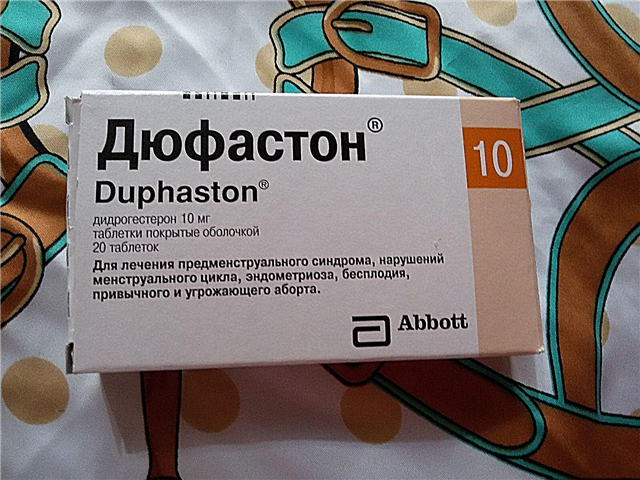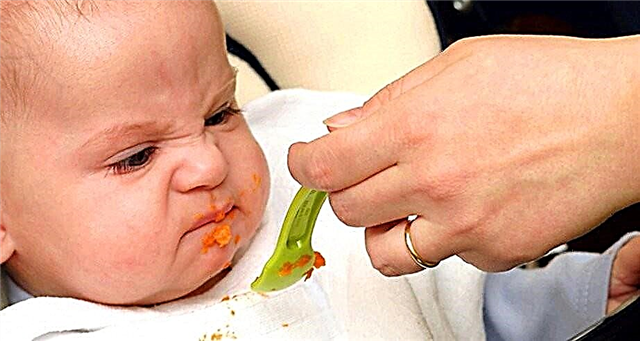Acetone in a child's urine is a symptom of an eating disorder, but it can also be a sign of certain medical conditions. Its presence is the result of a natural defense mechanism that turns on when the glucose reserves in a child's body are depleted. The parents' desire is understandable - to know how this can be dangerous for the child.

Acetone in the urine of a child
Acetone elevation symptoms
Under normal conditions, the body uses carbohydrates or sugars to provide energy for all normal functions (breathing, digestion, muscle contractions, etc.). However, when carbohydrate stores are low, the body has to turn to fat stores, which are mostly in the liver, to continue producing energy.
When fats are broken down and metabolized, a series of intermediates called ketone bodies are formed, which appear in the baby's blood (acetonemia) and urine (acetonuria). They are also called ketones and acetone.
Small amounts of ketones are usually harmless, but they can disrupt the acid-base balance in the blood, making it difficult for the body to function normally.
Important! Acetonemia is a common occurrence in a small child. After 5 years, the risk of its occurrence decreases.
If children have an increase in ketones, then acetone will smell from the mouth. This is the very first characteristic feature. The smell is sour, reminiscent of fermented dough or sour apple.
When acetone is present in a child, symptoms may also be as follows:
- Vomiting. Acetone in the blood provokes nausea, vomiting, in turn, causes hypoglycemia, which leads to a new formation of ketones. The result is a vicious circle;
- The baby often urinates, and the skin begins to peel off;
- The child stops gaining weight and may even lose weight;
- Abdominal pain
- Poor appetite or complete refusal to eat;
- The urine turns pinkish and will also stink with acetone;
- The newborn is lethargic and lethargic;

The baby is lethargic and sleepy
- The temperature can rise to 37.2-38.2 ° C.
If a baby has acetone in the urine for a long period, then this condition will mean acetonymic syndrome, the symptoms of which are more severe:
- Rapid breathing. The body tries to eliminate the excess of ketones through breathing, a kind of compensation mechanism begins to work;
- Vomiting is also more frequent, blood may be present in it;
- Signs of dehydration: sunken eyes, thick saliva, dry mucous membranes;
- Heart rhythm disorder;
- Negative reaction to light;
- Inhibited consciousness;
Important! With a low concentration of ketone bodies, the child is excited. High concentration leads to inhibition of consciousness, up to coma.
- Constant weakness and drowsiness.
Causes of acetone and ammonia in urine in children
Important! A child should consume 3-4 times more glucose than an adult, since his metabolism is faster.
The energy of carbohydrates is spent on growth, maturation of the immune system, fighting infections, etc. The reserves of sugars in the baby's body are much lower than in adults. Their decline is the main reason why ketone bodies appear. There are many common situations in children that lead to this. Sometimes acetone in urine is a sign of serious pathologies.
Causes of acetone in urine in a child:
- Starvation. Too long abstinence from food causes hypoglycemia, the body tries to restore energy from fats;
- Lack of moisture due to hot weather and excessive sweating;
- Antibiotic treatment;
- Stressful situations;
- Exercise stress;
- Colds and infectious diseases that cause fever. Fighting infections forces the body to expend a lot of energy. In addition, appetite and sugar consumption are reduced. Ideal conditions are created for the production of ketone bodies;

The baby has a fever
- Children over one year old have an unhealthy diet containing mainly fats and fast carbohydrates (their source is sweets, industrial juices, etc.) without sufficient intake of slow carbohydrates (potatoes, rye bread, some cereals, etc.), which increase reserves glucose;
- Food poisoning, in which diarrhea and frequent vomiting are observed;
- Post-traumatic conditions;
- Deficiency of enzymes involved in the breakdown of carbohydrates;
- Metabolic disorders;
- Diseases of the gastrointestinal tract;
- Benign and malignant neoplasms;
- Iron-deficiency anemia;
- Diabetes.
Sometimes a child's urine smells like ammonia. This rarely happens in the presence of factors causing the formation of ketone bodies, more often indicates other problems. A slight ammoniacal odor appears in urine some time after urination; normally it is practically absent in an infant.
Ammiak is a substance that is formed in the body during the breakdown of protein. Then it is rendered harmless by being converted into urea and excreted with urine. Moreover, fresh urine is almost odorless. If the baby's diaper already smells of ammonia when urinating, this can happen when:
- The body is dehydrated;
- For the treatment of ARVI or other infectious diseases, antibiotics were used that can provoke the smell of ammonia in urine;
- A nursing mother has changed her diet or in a baby who is bottle-fed (the brand of consumed milk formula has changed);
- There is a lack of vitamin D;
- Hygiene measures are insufficient. For example, when the diaper does not change for a long time, the urea is exposed to bacterial attack and ammonia is released;
- New dishes are introduced into the baby's diet;
- The child is overworked or undergoing emotional stress;
- Poisoning with poor quality food occurs;

The child has nausea when poisoning
- Diseases of the urinary system (pyelonephritis, cystitis, urethritis, etc.), liver (hepatitis), endocrine diseases (diabetes mellitus) develop. A sick child's urine smells like ammonia.
Diagnostic methods
Diagnosis of acetone in urine is not difficult. It is performed as part of a general urine analysis. However, to detect the cause of acetonuria, additional diagnostic tests are prescribed:
- blood test (general, biochemical and for the presence of leukocytes);
- ultrasound examination and MRI of organs.
Important! Acetone test results are indicated with crosses. The absence of acetone in urine is considered the norm. One "cross" means a low level of it, two or three "crosses" indicate a positive reaction to acetone, four - about a high level, requiring treatment.
Determination of acetone in urine at home
A good way to diagnose acetonuria is by using over-the-counter test strips. The strip is moistened with a few drops of baby urine. Depending on the presence and level of acetone, it turns into different colors.

Acetone test strips
The opinion of Dr. Komarovsky
Children's doctor Komarovsky urges not to dramatize the problem of the presence of acetone in children's urine. He believes that this is the result of an adequate work of the body's defense mechanisms while lowering glucose levels. However, parents should closely monitor the baby, taking timely measures to increase this level and prevent the development of negative consequences.
Why acetonuria is dangerous
Acetonemia causes bouts of vomiting with every meal and diarrhea in the baby, so there is a danger of dehydration.
Primary acetonymic syndrome is not associated with any disease. Therefore, if a child's urine smells like acetone, it is enough to create conditions under which the level of glucose in the blood will rise. Accordingly, all other symptoms that threaten the baby's health will disappear.
Important! Sometimes an acetonymic symptom is secondary, a consequence of other diseases. In these cases, it is required to immediately treat the underlying pathologies.
Preventive measures
Best Acetone Urine Treatment in Children – this is its prevention, which is as follows:
- If the baby is over 6 months old and is being given complementary foods, then the most important thing is a balanced diet. Excessive fats and simple refined sugars should be avoided. The child's menu must include products containing complex carbohydrates: bread, rice, pasta made from durum wheat flour;

Foods with simple and complex carbohydrates
- What should parents do when a child has a fever, refuses to eat, and the body quickly depletes its glucose reserves? Give him sugary drinks to reduce the risk of long periods of fasting;
- If children are prone to acetonemia, and the situation encourages this (physical fatigue, emotional stress, hot weather, etc.), then, in order to remove the possibility of the appearance of ketone bodies, the child should be given 5 ml of sweet liquids (for example, sweet tea or dried fruit compote) every 5 minutes.
Important! It is not recommended to give a lot of fluids at once, as this can cause vomiting and activate the formation of ketones.
In milder forms, the presence of acetone in urine lasts from 2 to 8 days and ends on its own. It can occur in infants quite regularly. Therefore, parents need to organize careful observation in order to prevent acetonuria in time and not to miss the possible development of diseases.



